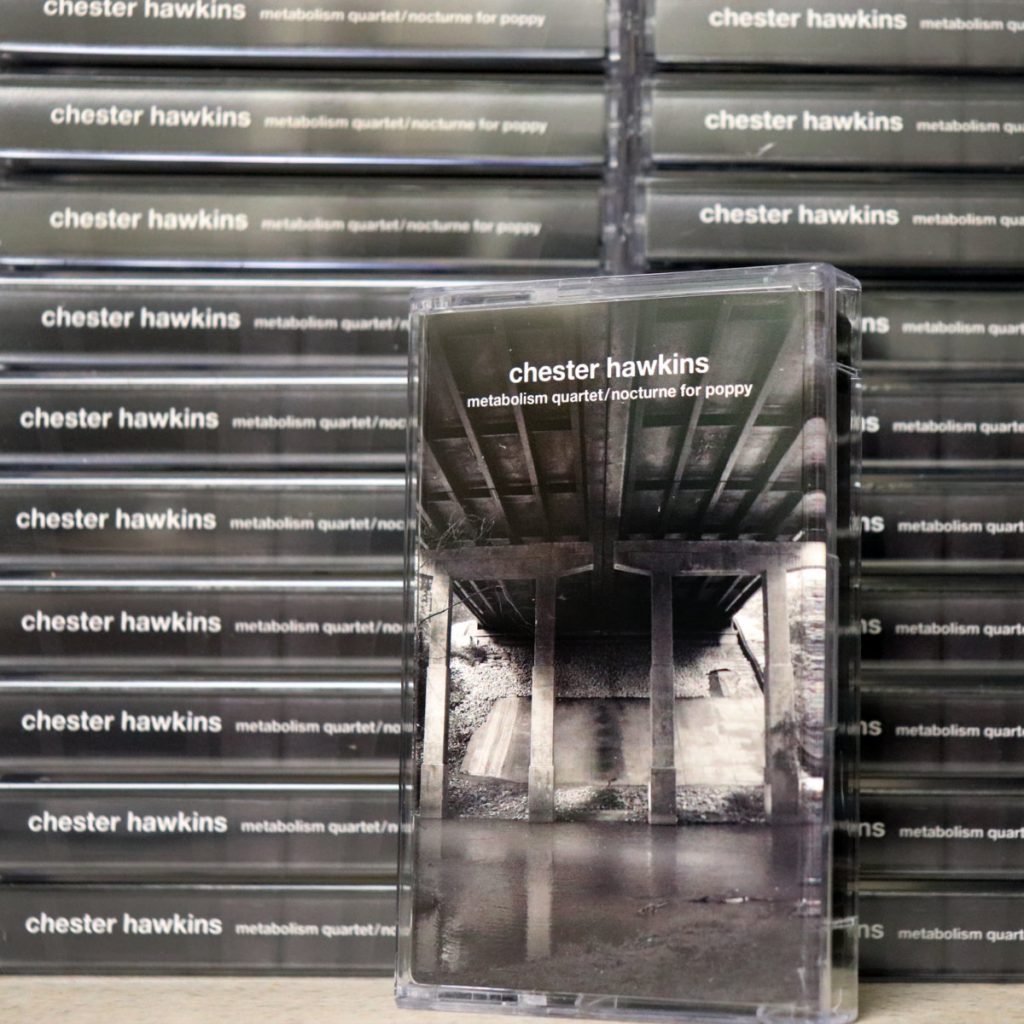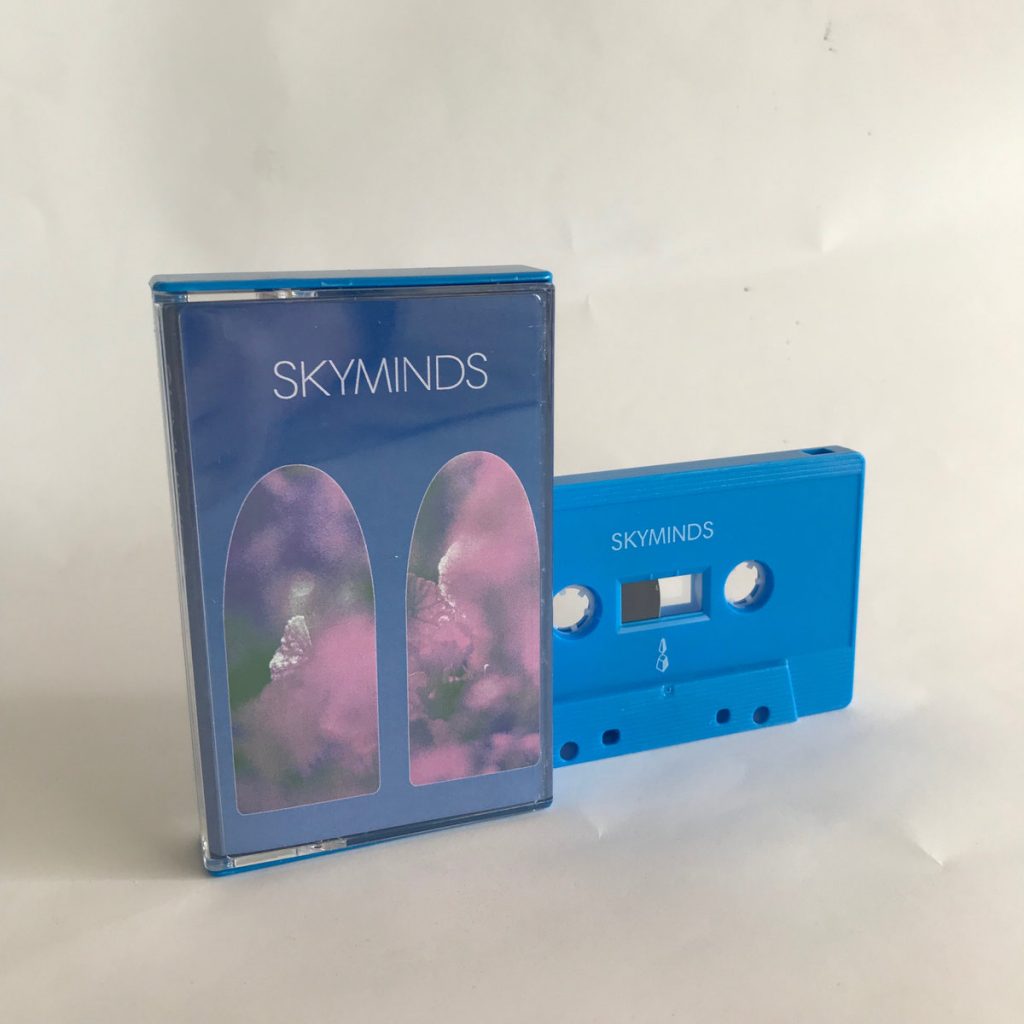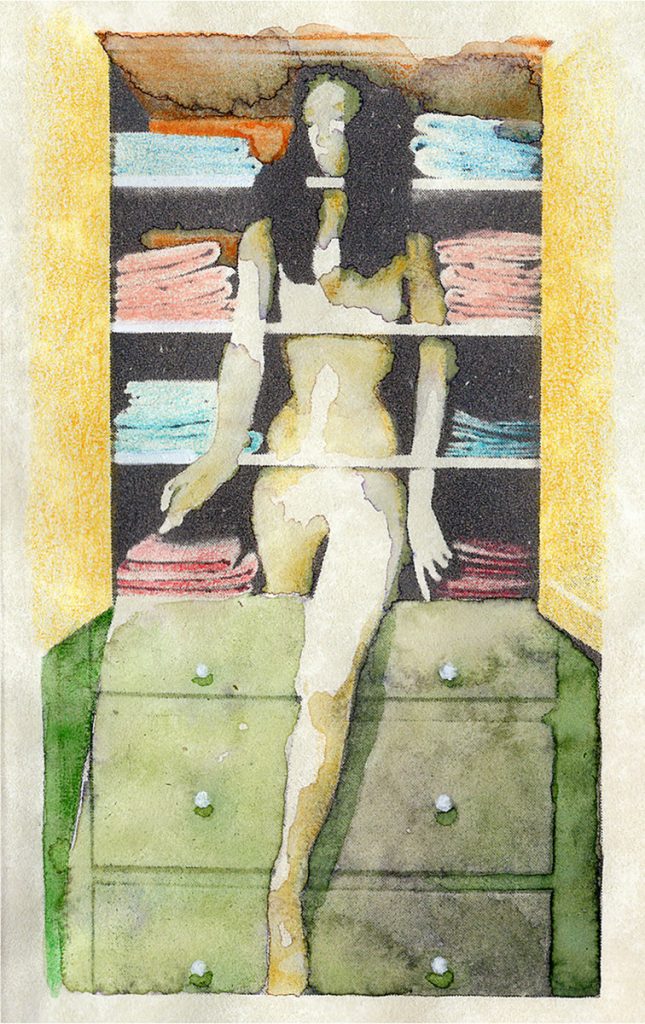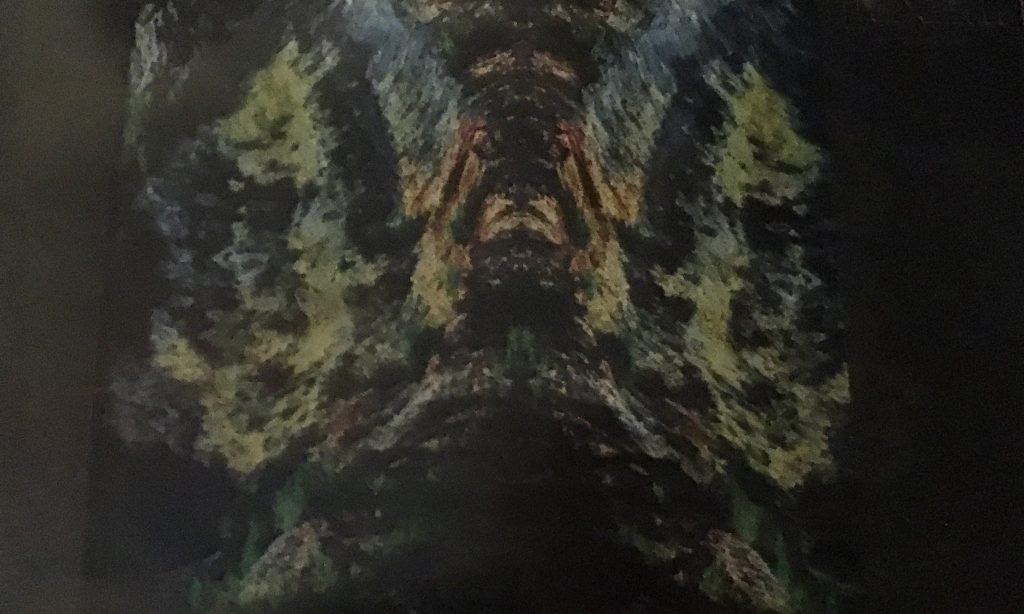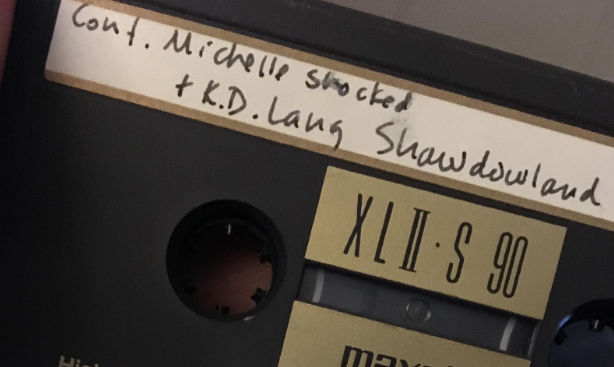4.29.19 by Ryan Masteller
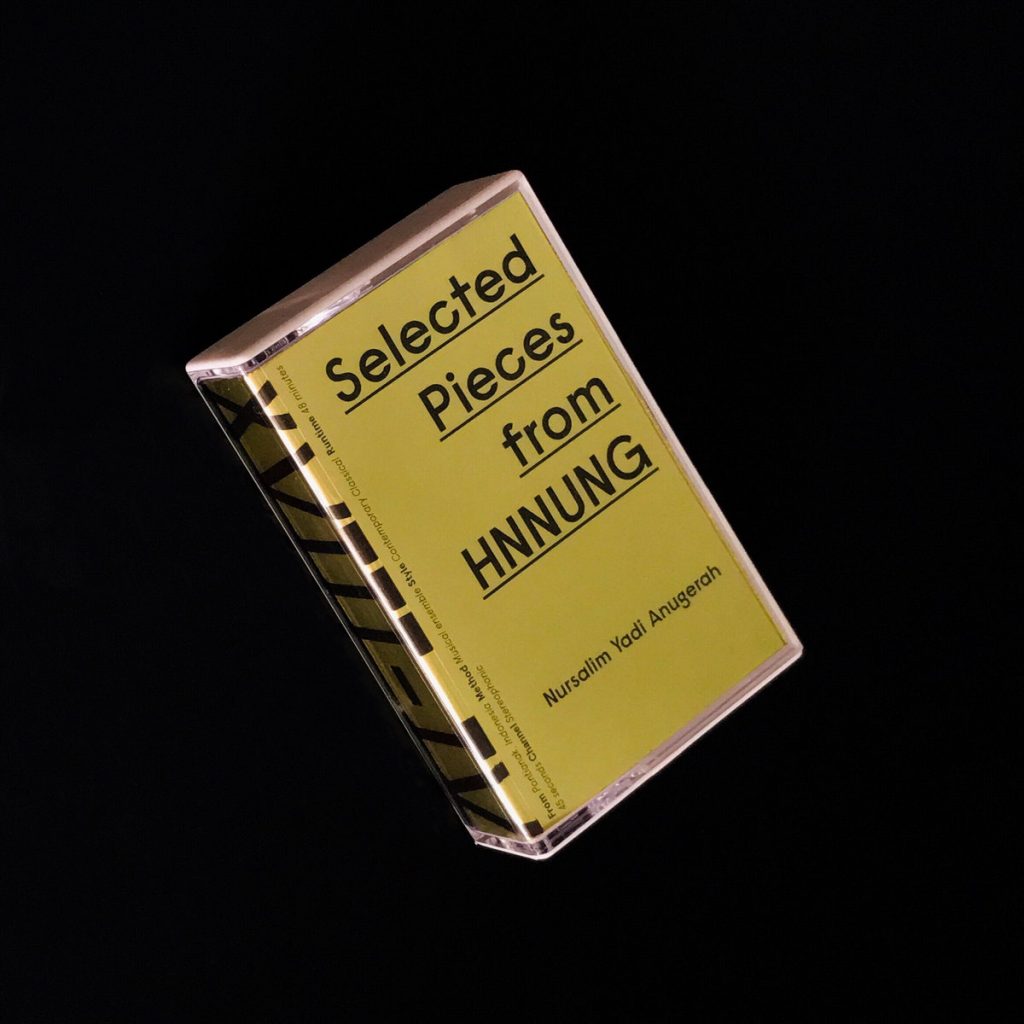
I like that we don’t have to guess with Hasana Editions, the tape label based in Bandung, Indonesia. It’s all right out there, right on the cover. The big, underlined title. The artist name. The location of origin, the method of performance, the style of music, the runtime, and even the channel (Stereophonic) are all represented. If I was doing this for Cassette Gods, I wouldn’t even have to search for or squint at how long the tape is to put it in the header like we do there – C52. It’s like a dream.
The presentation itself is beautiful, and the “Selected Pieces from HNNUNG” are majestic and expressive. Nursalim Yadi Anugerah is a composer based in Pontianak, Indonesia (he’s not a member of Pontiak, which I had to do a double take to figure out), and he’s “inspired by the cosmology, sonology, and culture of indigenous people of Borneo.” In fact, look – I’m not going to be able to paraphrase this with any grace, so let me just stumble through a direct quotation: “Adapted from Kayaan people oral literature Takna’ Lawe’, ‘HNNUNG’ is a chamber opera that amplifies the cosmic dramaturgy of Kayaan culture – in which the narrative of matriarchy is essential.”
I’m an outsider experiencing these pieces; I cannot relate to them on a cultural level or grasp their nuance or even interpret the intended audience response. I CAN relate to them on a musical level, and finding myself tossed about on the waves of “HNNUNG” is pretty exhilarating, intoxicating even, despite my remove from understanding. These nine pieces, selected, as the title suggests, from Anugerah’s larger opera, were “performed by Balaan Tumaan Ensemble and Kerubim Choir using various instruments ranging from kaldii’ and sape’ to tenor saxophone and contrabass.” Sometimes it sounds like some sort of experimental improv ensemble racing through a live set, but then the choir comes in and blows up any proper thoughts I may have been forming about it. Other times the eastern compositional flourishes are a welcome reminder that I’m on uneven footing, and that I should prepare to be surprised.
And I almost constantly am! I have no idea what “HNNUNG” means (all I picture is a sword flying end over end in the air until it embeds itself in a tree trunk with a hearty “hnnung” sound), so I am tabula rasa in this environment. “Selected Pieces from HNNUNG” etches itself across my surface. The drama and the tension coax new feelings, enabling mental connections heretofore unconnected. I am drawn further and further in.
Can I get out? Sure, I just press stop. I have to go get lunch anyway.
“Numbered edition of 100. Hand-stamped pro-dubbed C52 NAC cassette tape with recto/verso printed golden card. … Made and duped in USA. Printed in Indonesia.” Thanks again, Hasana Editions, for doing my work for me!

